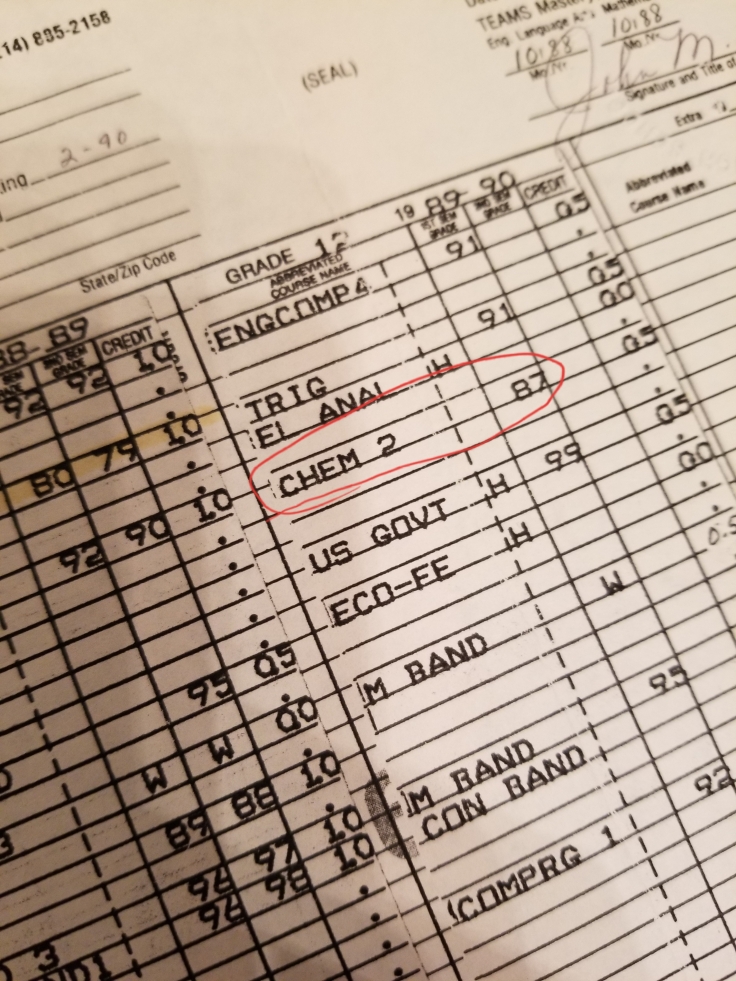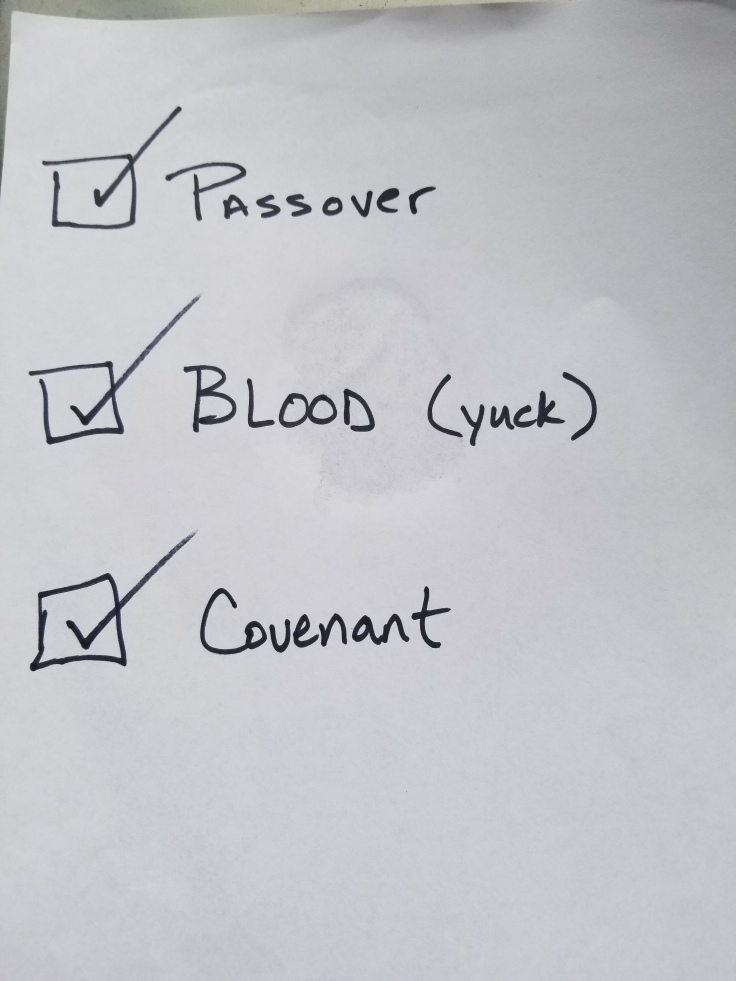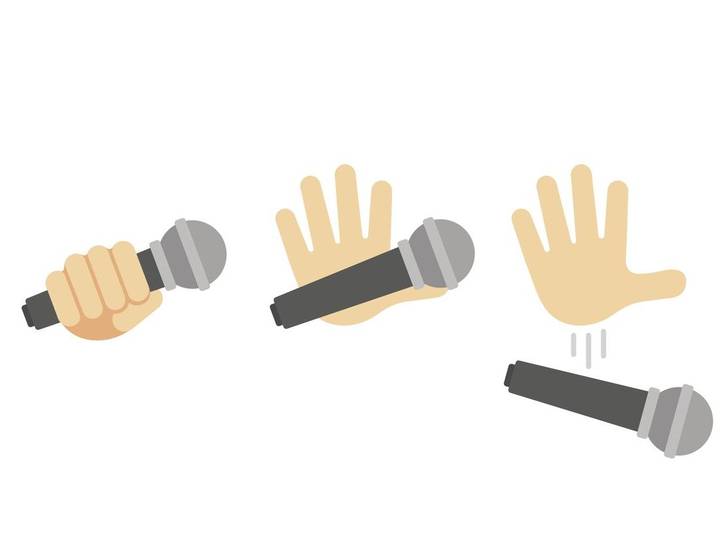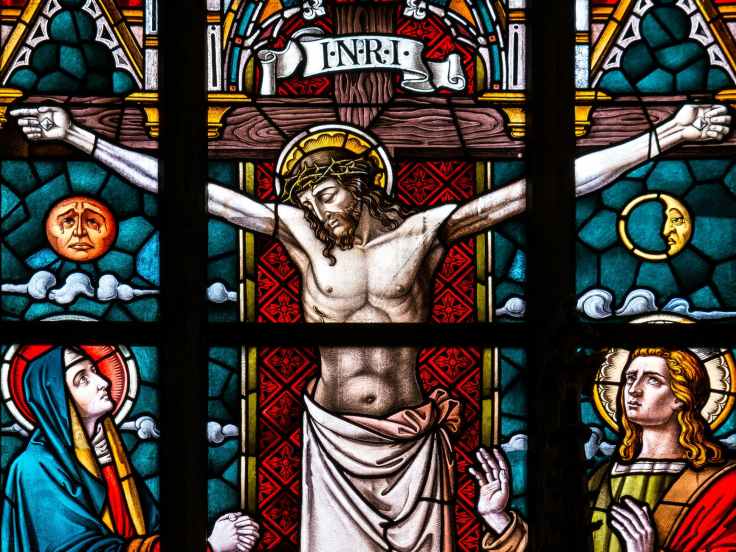
Read Mark 14:12-31
When I was in High School I took Chemistry 2 because the State of Texas said I needed 4 sciences. I had done well in Chemistry and sort of liked it, but I was too afraid of Physics to give it a shot. So Chem 2 it was. This was the first year it was offered at my High School and while our teacher was a seasoned veteran of many high school chemistry campaigns this was new ground for everybody. It did not go well. As a class we were some of the brightest my small east Texas town had to offer. We were all failing during the first six weeks. I don’t mean floundering, I mean straight-up failing with grades well below 70. More than one of us feared our GPA would plummet like the stock market following a terrorist attack on Silicon Valley. One day our teacher—who had a reputation for being one of the strictest in school- announced to us the greatest thing that any of us had ever heard: “There is going to be a curve on our six week final.” We stared at one another in genuine disbelief unable to fathom our good fortune. And at the end of the six weeks, most everyone had passed.
There are times in our lives when we really want to hear someone say a certain thing.
“Will you marry me?”
“The results are negative.”
“You are hired.”
“Go ahead, take off early, no problem.”
Some are life-changing while some just effect the immediate future, but we all know the feeling of hearing longed-for words.
That fateful night when Jesus sat with his disciples (including Judas) to celebrate Passover he said words that they did not expect, but once he said them, I know that their hearts were filled with joy.
What words? “This cup is the new covenant in my blood; do this in remembrance of me.”
It is difficult for us so many centuries later to hear those words the way the disciples would have, still I think it is worth the effort for us to try. If you have been following this blog you know that in the Gospel of Mark there is a lot of kingdom stuff. At the beginning of the Acts of the Apostles (stay with me now) those gathered ask Jesus if this is the moment that he is going to restore the Kingdom to Israel. Because as good Jews, they were all anxious to see Israel’s fortunes renewed and a few of them were looking forward to being in good with the new King. I am looking at you John and James, sons of Zebedee.
Their collective focus was somewhat limited compared to what the LORD was actually up to; but we can forgive them of that. After all, we think God blessed us with an up-front parking space sometimes so they are not the only ones who can be a bit myopic. Spoiler alert: Jesus reminds them that it is not theirs to know the times and circumstances that God has ordained for the big-ticket items. I bring this up to point out that the disciples would have been thinking kingdom thoughts a lot during their time with Jesus.
Kingdom thoughts for them would mean the relationship of God to Israel. Now we need to look more closely at three words so the full import of them can wash over us as they would have those lucky enough to share Passover with Jesus. The words are blood, covenant, and new.
First, the setting. Passover as a meal is filled with symbolism. At the risk of being over-simplistic, Passover is a ritual meal meant to remind the Jewish people how God weakened Pharaoh’s resolve to keep them as slaves in Egypt through a series of plagues. The culminating plague was the death of all first-born children in Egypt from “Pharaoh on the throne to the slave girl (see Exodus)”. The Israelites were instructed to save their own children by sacrificing a lamb for dinner and sprinkling its blood on the mantle of the door. That’s the Biblical story that is at the heart of Passover (where the blood was death passed-over); yet, the ritual of Passover remembers not just this specific moment but also the broader truth that God had kept his covenant with Abraham and established an additional covenant through Moses and the Law (Ten Commandments) carved in stone. The disciples would be reminded of all of this that night.
Blood represents life in the Old Testament. Passover lambs, all sacrificial animals really, give their life in exchange for the lives of the spared. When Moses consecrates the behavioral covenant of the Ten Commandments between God and the people he sprinkles the blood of a sacrifice on the people saying, “See the blood of the covenant that the LORD has made with you in accordance with all these words.” A covenant is a binding, solemn agreement between two parties. The significant difference of a covenant is that the parties agree to perform their actions regardless of the actions of the other party. This is what makes it different from a contract. The Mosaic covenant establishes the Israelites as the people of God with God as their King. The covenant is that God will be the King and lead them; the people will set themselves apart from their neighbors by living the commandments.
Alright, if you are still with me it is about to get real!
Passover understood (check).
Blood even if icky understood (check).
Covenant understood (check).

Years pass, Israel goes back in forth in their commitment to God and the covenant. Eventually, they ask for an earthly King. They again vacillate between being a faithful people and being a hard-necked people. The Kingdom divides. Then the prophets show up to help call them back to their roots and the requirements of the covenant. Amidst those prophets was young man named Jeremiah through whom God brought a very distinct message.
“Behold days are coming declares the LORD, when I will make a NEW covenant with the house of Israel and with the house of Judah… I will put my law within them, and on their hearts I will write it; and I will be their God and they shall be my people… they shall know me from the least of them to the greatest of them for I will forgive their iniquity and remember their sins no more.” (obviously there are things that are said in the ellipsis above. You can read the whole passage here)
Jeremiah goes on to assure his listeners that God is faithful to this promise. That the arrival of this new covenant will also mark the restoration of the Kingdom of David and a perpetual presence before God of a priest to prepare sacrifices continually. God offers as assurance the certainty that there exists a perpetual cycle of day and night that cannot be broken. (side note: last I checked day and night still happening with regularity)
And now it all comes together. Imagine you are Mary or Martha; Peter or John. Having grown up hearing the scroll of Jeremiah read and the promise above being highlighted. So you are sitting their experiencing the normal elements of Passover: unleavened bread, bitter herbs, etc. No doubt there is whispered conversation because Jesus says he will be betrayed. Maybe you weren’t looking when he poured the wine. Maybe you were half listening.
What did he say? Did I hear correctly?
If you have read this far, you know enough about every word to get the meaning. Like them you would have heard “new covenant in my blood.” The long-awaited new covenant that God promised through Jeremiah. Finally, it was there. How your heart would have soared. Like me and my fellow Chem 2 students, you may not have realized how badly you wanted to hear those words until they happened.
Together, the crucifixion, the resurrection, and what came to be known as the Last Supper explain everything you need to know about Jesus. Together they fulfill everything that the prophets promised about the Messiah and the only thing that remains is for Christ to return and effectively put the period on the sentence.
Jesus is the Passover lamb, the one whose life was laid down for others at the crucifixion.
With Resurrection, Jesus demonstrated God’s power over death and he became both the eternal king and the perpetual priest.
The New Covenant is sealed with His blood and delivered by Him to us. With it, those who trust in God have their sins forgiven and the ways of God are written on their hearts though the Holy Spirit. They become the children of God.
Every time communion /eucharist is celebrated (as Jesus commanded that we do at that Last Supper) believers are remembering what Jesus did and who He is until He comes.
Are you a believer? Perhaps as you read this you are thinking that you need to learn more about this whole Jesus thing? If this is so, the Holy Spirit is scribbling on your heart right now trying to get your attention. Lean into it and respond! Above all else, do not be afraid; after all, one thing we can trust is that God grades us on the curve!











